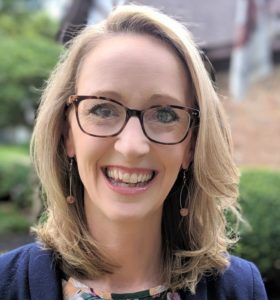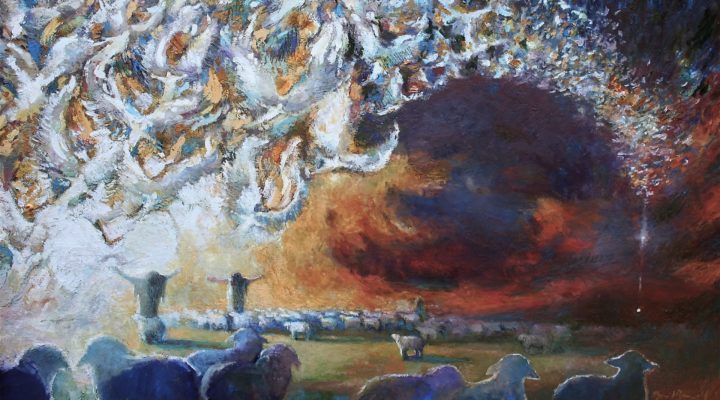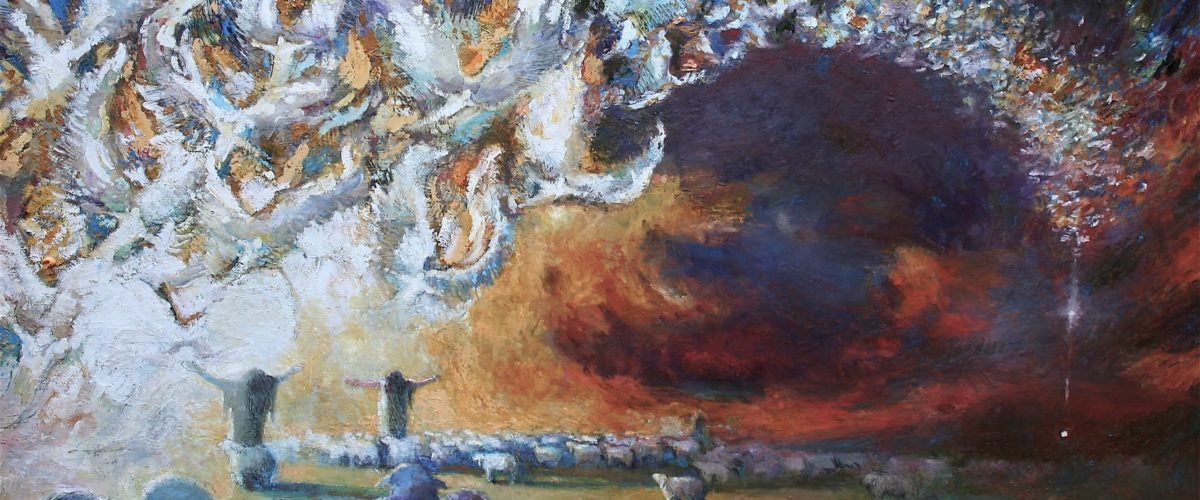The Advent season for the Christian faith community is really important. It’s the season before Christmas that symbolizes a deep sense of longing — a longing for something that is not here yet but is hoped for.
Hope that is not seen as in Romans 8:24, but one that we wait for patiently. A hope that we also have with groans too deep for words — deep enough we need the Spirit to intercede for us. A hope of the “here-and-not-yet,” the “dawn and the sunrise,” as Karl Barth put it.
So this longing for things to be made right, in anticipation of who was born on Christmas, is … uncomfortable. And many of us are experiencing that this year more than ever with so many losses — loss of family members to COVID-19 or other reasons, loss of friendships, missing seeing our grandchildren or, just plain old uncomfortableness of knowing what is happening right now in the world is just not right.
“Do you feel a groan about that in you that is too deep for words? That’s the longing of Advent.”
Do you feel a groan about that in you that is too deep for words? That’s the longing of Advent. For many of us, this is a new feeling at Christmas because, well, Christmas has been a season of busyness and fulfillment, not quiet or aching.
In the spirit of Advent and longing, let’s lean into it a bit this year, lean into the uncomfortableness-of-Romans-8 type longing. So, I’m wondering if we need to reframe this 2020 Christmas according to the first Christmas: quiet, simple, not many people, calm.

Emily Smith
This brings me to the shepherds. In the Christmas story, the entire host of angels (not just Gabriel and a sidekick, the entire host!) appeared first to the shepherds to announce the birth of Jesus. The angel choir could have announced the birth from the main hub of Jerusalem to the leaders of the time or gone to the kings in the East or projected it on a huge billboard of Times Square (well, whatever that was at the time). The angels could have announced it like the scene in “Aladdin” where he comes in with the big parade (“Make waayyy … for Prince Ali”).
Instead, the angels went to the shepherds — some of the lowliest in society at that time, the marginalized, the unseen — in the middle of the night. (The whole Christmas story is upside down of what was expected at that time anyway. This is an example of that and finishes with a king being born among livestock to an immigrant family. That upside-down/not-doing-things-as-usual kingdom is for another post.) Let’s get back to the shepherds for now.
Who are our modern-day shepherds — those who feel forgotten, marginalized, unseen? Let me share with you a few stories people have sent me:
- Our health care workers, janitorial staff, technicians in the ICUs who are living a reality in the hospitals that’s opposite to people’s actions during this Christmas season.
- Families who have lost a sister, mom, dad, grandparent this year but feel unseen as people go on like things are normal.
- Mommas who are trying to put food on the table for their kids but can’t afford a hospital bill. And, they still have to go to work as a cashier with people yelling at them without a mask.
- Church members/clergy who have left their churches, lost their churches, or are feeling angst about being at their churches because they view loving our neighbors differently than what they are seeing.
- Families who already were on the brink of poverty prior to the pandemic, and now have gone further down with a loss of jobs.
This list could continue to go on. If you feel angst in this season prior to Christmas, that’s Advent, that’s a longing for hope. If you feel angst in this season and are marginalized or feel forgotten, you are a shepherd.
And that’s who the angels went to first. To herald the birth of a Redeemer who would years later say, “Blessed are you who are poor in spirit for yours is the kingdom of heaven.” An Overcomer who would take all shame, hurt and pain on a cross and put it to rest to set things right. An Immanuel, God with us, who came for the sick, the poor, the marginalized, the captives — with us and for us. A Love that said the entire law could be summed up in love God and love others. Especially the shepherds.
“This means I reframe Christmas in light of that first one — calm, quiet, longing, hoping.”
What does that mean for me this Christmas? This means I reframe Christmas in light of that first one — calm, quiet, longing, hoping. It means it is OK if we feel angst and longing and uncomfortableness. That longing leads to the end of Romans 8 with a huge promise that nothing can separate us from the love of who was born on Christmas.
It means we remember the shepherds and make decisions to love and protect them even if it feels uncomfortable and different this year as we make hard decisions to stay home. Perhaps that is where the true meaning of Christmas is anyway.
Christmas isn’t canceled; it’s magnified this year.
I want to leave you with my favorite Christmas song, O Come, All Ye Faithful, a hymn written by a refugee in the 1700s. It’s thought this song is a reference to the shepherds after hearing the angels singing. We can’t travel to Bethlehem to see the baby as the song suggests. But we can live out the spirit of the song in our homes. For the shepherds of our time during this pandemic. And we can magnify who we long for: Immanuel, God with us.
O come, all ye faithful, joyful and triumphant,
O come ye, O come ye, to Bethlehem.
Come and behold him, born the King of angels.
O come, let us adore him, O come, let us adore him, O come, let us adore him, Christ the Lord.
Sing, choirs of angels, Sing in exultation;
Sing, all ye citizens of heaven above!
Glory to God, all glory in the highest.
O come, let us adore him, O come, let us adore him, O come, let us adore him, Christ the Lord.
Yea, Lord, we greet thee, born this happy morning.
Jesus, to thee be all glory given.
Word of the Father, now in flesh appearing.
O come, let us adore him, O come, let us adore him, O come, let us adore him, Christ the Lord.
See how the shepherds, summoned to his cradle,
Leaving their flocks, draw nigh to gaze.
We too will thither bend our hearts’ oblations.
O come, let us adore him, O come, let us adore him, O come, let us adore him, Christ the Lord.
Child, for us sinners, poor and in the manger,
We would embrace thee, with love and awe.
Who would not love thee, Loving us so dearly?
O come, let us adore him, O come, let us adore him, O come, let us adore him, Christ the Lord.
Emily Smith serves as assistant professor of epidemiology in the Department of Public Health at the Robbins College of Health and Human Sciences at Baylor University. She is an adjunct assistant professor of global health in the Duke Global Health Institute at Duke University. She lives in Waco, Texas, where her husband serves a Baptist congregation as a minister.


